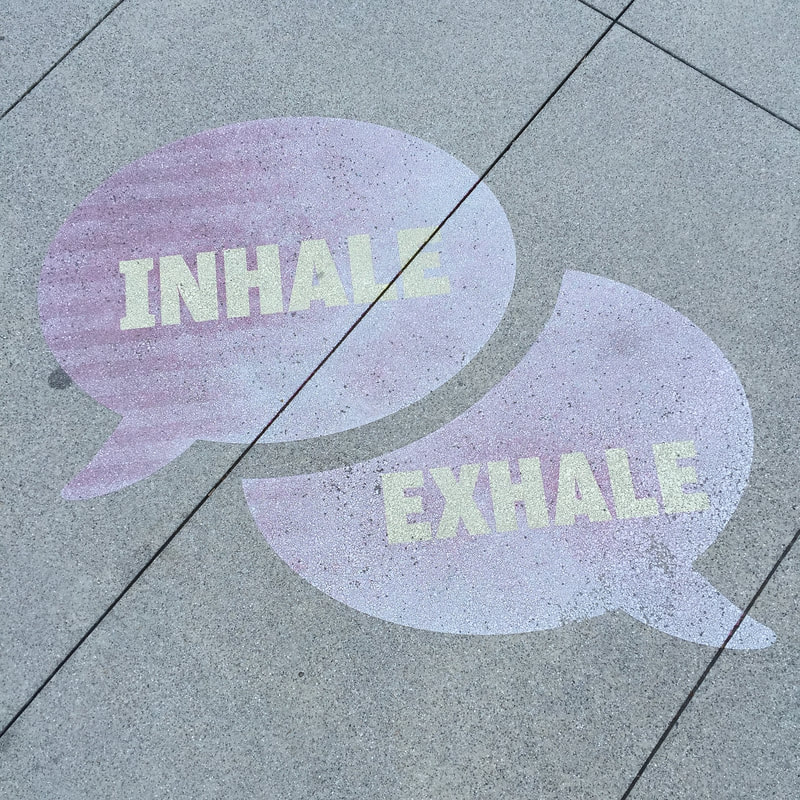|
Anyone who takes professional VoiceOver performance seriously understands the amount of training and prep work that goes into becoming a professional voice-over artist. But, did you know, that many VO skills are transferable to other professions that require a lot of talking, like speakers, podcasters, educators, salespeople, networkers, anyone who talks a lot during their day. Have you ever wondered how some people can talk continuously and their voice sounds strong, and refreshed or maybe you’ve attended a lecture by someone who is painful to listen to, their voice sounds weak, or they are constantly clearing their throat? Vocal health matters…You must take care of your voice if you want your voice to take care of you. Hope you will find some of the following tips helpful, but remember, while I may play a doctor or nurse in a VoiceOver gig, I’m not one. So, please check with your doctor, if you have any vocal issues or concerns about some of the following tips. In fact, it’s a great idea to go to an ENT and have them do a check-up to make sure you don’t have any vocal cord polyps, sometimes called ‘Singer Nodules’, which can happen from overuse and strain. I’ve had it done myself as a precaution, thankfully everything was fine. If you're talking a lot during the day, you must include vocal rest every day for an extended amount of time. That means no talking, even to friends and family. No whispering, that’s actually harder on your vocal cords. Avoid yelling during sporting events, talking loudly in a restaurant, or bar. Needless to say, smoking is hard on your vocal cords. Coffee, tea, or watermelon?Many people might be surprised to know you need to keep your body well hydrated 24 hours before a speaking engagement. Drinking half a bottle of water 15 minutes before your talk just isn’t going to cut it. The water isn’t going to reach your vocal cords in time. Vocal cords vibrate really fast, so having a proper water balance will help keep them hydrated. According to The U.S. National Academies of Sciences, Engineering, and Medicine, an adequate daily fluid intake is: ‘About 15.5 cups (3.7 liters) of fluids a day for men About 11.5 cups (2.7 liters) of fluids a day for women.’ This might change due to weight, exercise, health, or environment. If you have kidney issues check with your doctor to see what’s right for you. Eating watermelon or spinach, which are nearly 100 percent water by weight can help with hydration as well. A good way to tell if you are properly hydrated is that your urine is clear or light yellow. Coffee, tea, and alcohol can cause dehydration, so limit use before speaking, I confess I do drink my green Sencha tea, and some folks might need a cup of Joe to start the day. It should be fine as long as you’ve had enough water and limit caffeine intake on speaking days. Too much caffeine can dry you out and is hard on the voice. It also can make you nervous which adds to vocal tension. One of the best teas for vocal health is Throat Coat tea which is now pretty easily available in most decent supermarkets and health food stores. A Green Apple a day…Voiceover artists know that sometimes you can have mouth noise, which is clicky, lip smacks, excess saliva, crackles, and weird sounds which can be heard especially through the microphone but also in regular speech. As mentioned earlier, caffeine is a big culprit, as well as dairy and other foods eaten shortly before recording or talking. Eating a green apple before your talk will greatly reduce the mucus sounds and mouth noises. Constant clearing of your throat is very hard on the vocal cords, so if you need to clear your throat try humming, it’s much easier on your cords. Also paying attention to your diet is important. Too much dairy or mucus-producing foods, or acidic can be problematic. If you have acid reflux and don’t make changes in your diet, your vocal cords, and speech can be affected. Maybe pass on the tomato sauce with your pasta on nights before a performance. Making small changes like switching to almond milk. instead of whole milk can also help. If you think you have acid reflux talk with your doctor and dietician to find out what foods work for you or against you. Sleep tight…A good night’s sleep sounds simple enough, but not always easy to do. When you don’t get enough sleep your voice sounds tired, lethargic, and disengaged. Find ways that work for you to get a decent night’s sleep. One of the best purchases, I ever made is a hot air humidifier. Before I had the humidifier, I was waking up with a really dry throat and sinusitis issues. I found using the hot air humidifier greatly helped and I even needed fewer nasal sprays. Some people prefer a cold mist humidifier, I’ve used both and found them both helpful, although at this time I’m using a warm mist humidifier. You may want to experiment and see what’s works best for you. Every breath you take…It seems pretty reasonable, that breathing is an important part of speaking, right? Without air, we literally can’t talk..ever tried calling for help, while choking, it’s impossible. But many speakers don’t use breath effectively while talking. They just talk and have weak breath support, which lends itself to the dreaded vocal fry..which has become so popular these days. Diaphragmatic breathing, where your stomach expands while inhaling through your nose, and talking on the exhale provides a stronger, richer voice. Building up lung capacity also helps your speaking voice. One exercise I use is taking a diaphragmatic inhale through the nose, while holding my breath, and silently counting until I can’t hold it anymore. This is an exercise, I used while recovering from COVID and it helped me tremulously to regain lung capacity. However, you don’t have to be sick or recovering from an illness to benefit. You can also do the exercise while walking, take a breath in, walk and count as many steps as you can before requiring another breath. Better lung capacity means you need fewer breaths while reading, or speaking, and your voice sounds supported and stronger. It doesn’t take a lot, to make a huge difference. Breathing also helps with anxiety. Let’s say you're nervous right before a podcast, webinar, or sales meeting, for example, slowing down by taking a few moments to do some deep breathing meditation exercises grounds you and actually slows your heart rate down which naturally goes up if you’re anxious. You may not be aware of nervousness if you speak for a living, but taking the time to do a breathing mediation exercise, which can be as short as one minute, though 10 minutes is probably better, can slow your heart rate down. A faster heart rate can mean you are feeling the effects of adrenaline which can make you talk faster, seem unsure, and dry out your voice. Making relaxation and meditation part of your routine will benefit you as a speaker by making you calmer, and more confident. The tension comes out in the voice and can make you upspeak at the ends of sentences making you sound unsure of your subject, so give meditation and other relaxation techniques a try. Warm-Up...Doing a vocal warm-up before you utter a word in your talk is essential. When we wake up we often find we have ‘Morning Voice’ which is a raspy, husky, or weak voice. It’s due to mucus forming on the vocal cords during sleep, and various foods or conditions like acid reflux as discussed earlier. That’s why it’s important to warm your voice up at least 15 minutes before giving a presentation. I personally prefer a half hour to 45 minutes. There are many ways to warm up. I enjoy a hot shower with steam, and I start doing vocal exercises in the shower. I go through the vowel sounds several times and then the consonants.’Coulda Shoulda Woulda ‘, vocalized yawns, which is a yawn with a vocalized sigh. Tongue twisters are a good way to get the articulators working. You can look up Tongue twisters with different letters of the alphabet. I like using ’S’ letters to help get rid of sibilance. That ‘ssss’ sound can sound like a hiss. Neck stretches, shoulder, and head rolls can reduce tension. Reading out loud for 15 - 30 minutes a day not only improves your cold reading ability but also warms your voice up at the same time - so you can two benefits for the price of one. In summary - Prep work before you talk…
These are a few things to consider, which will to help make you a better speaker whether you are a VoiceOver artist or not. Have any special pre-talk hacks? Feel free to let me know in the comments below. Nancy Kaszerman is a professional voice talent for more than 10 years and is located in NYC.
Please feel free to comment, ask a question and connect on social media.
2 Comments
|
AuthorNancy Kaszerman is a VoiceOver artist and lives in New York City. Archives
October 2021
Categories
All
|









 RSS Feed
RSS Feed





